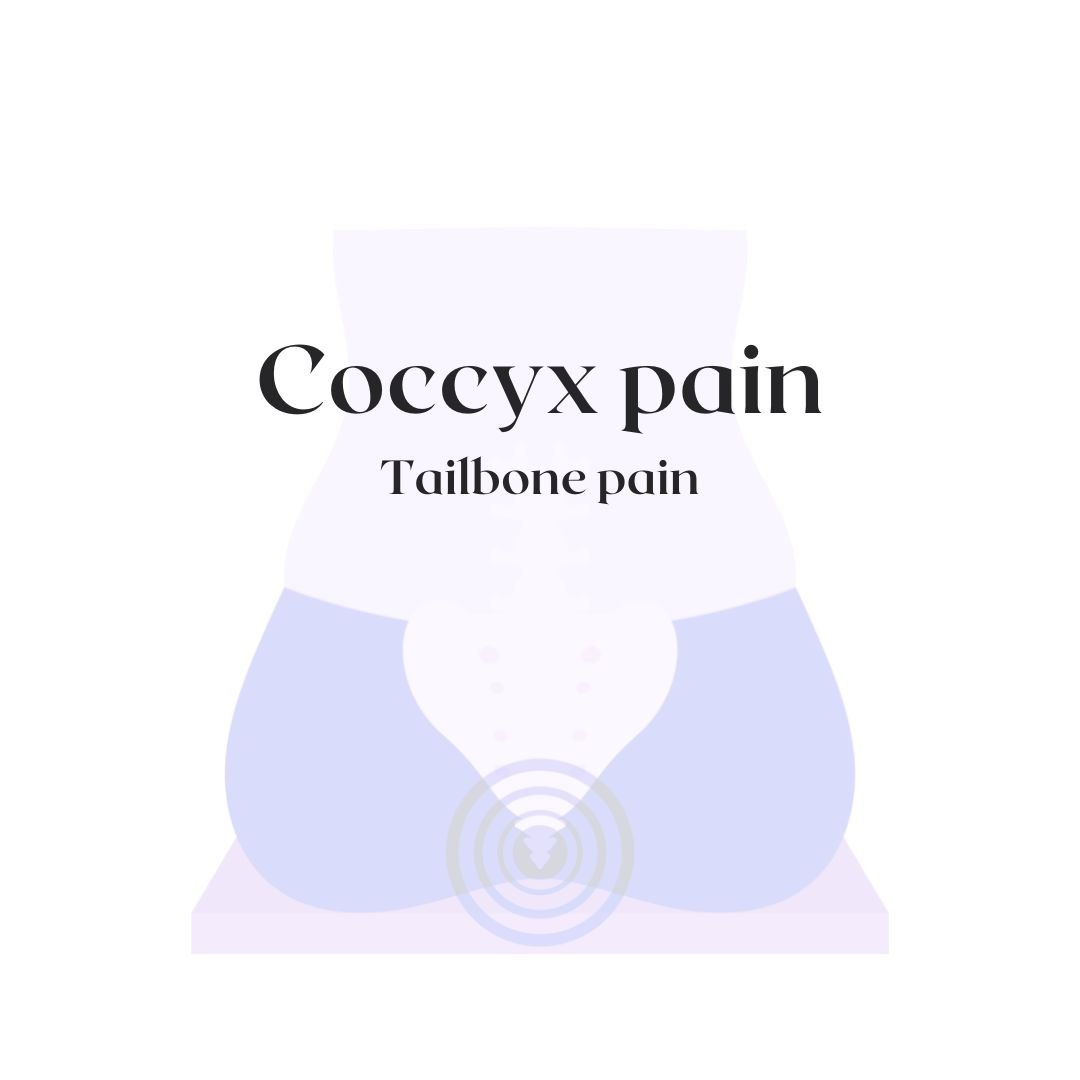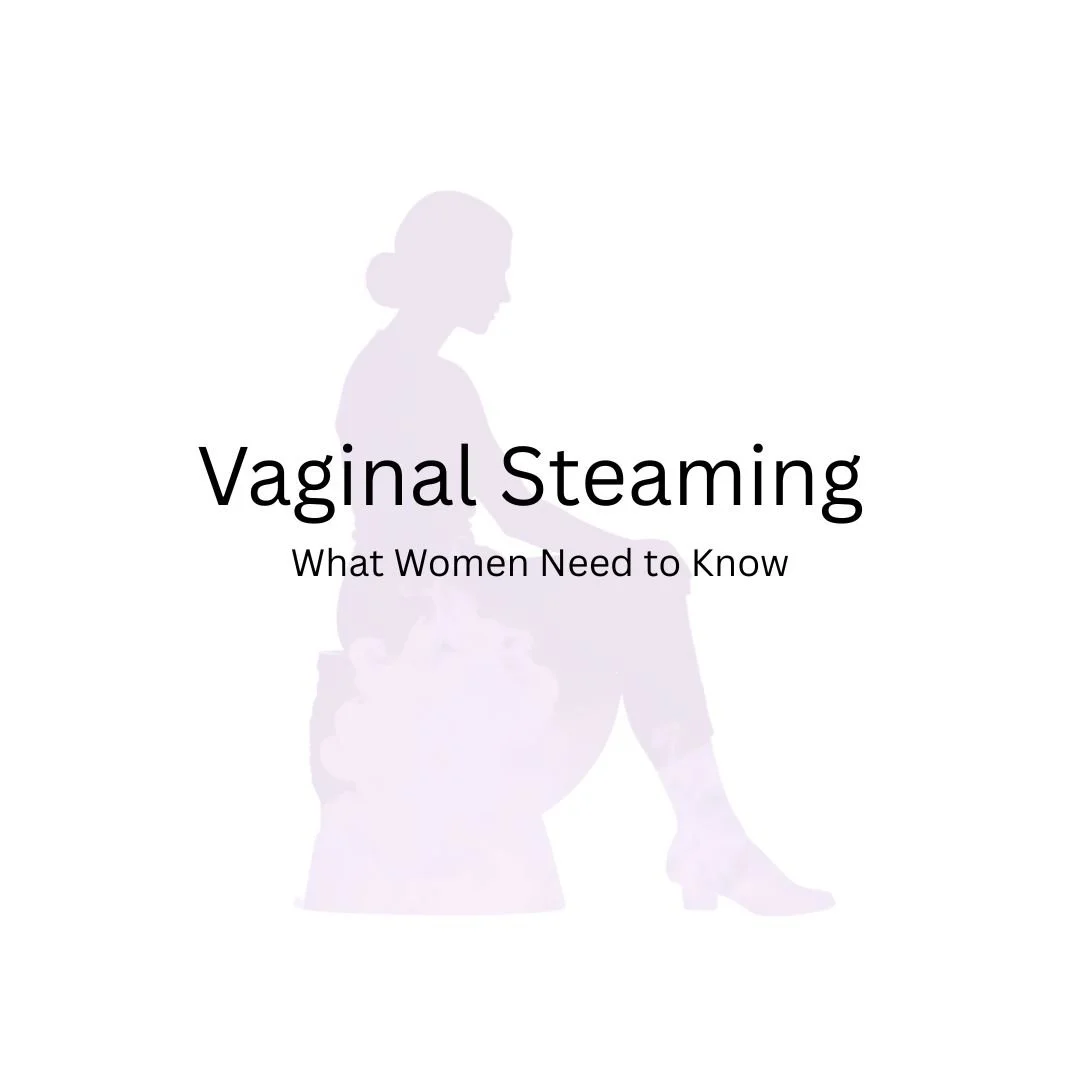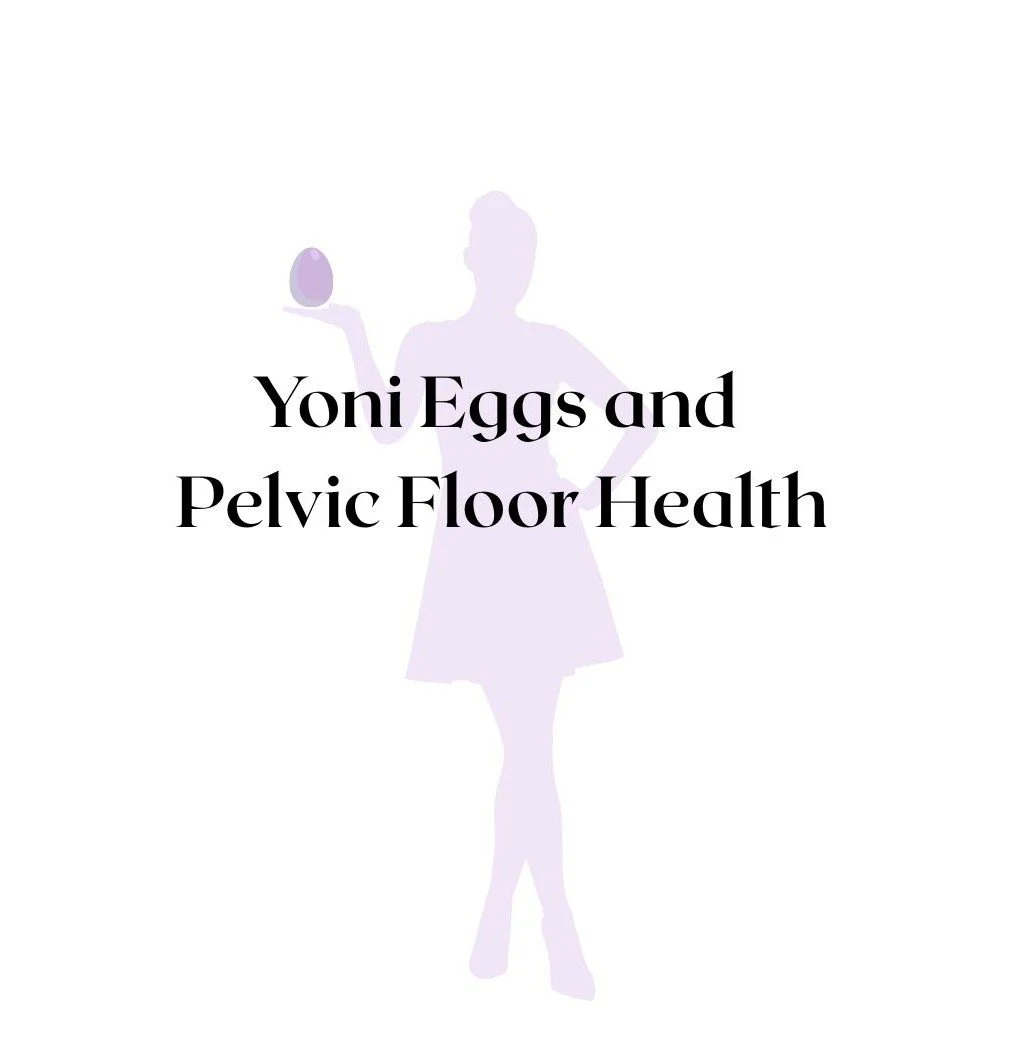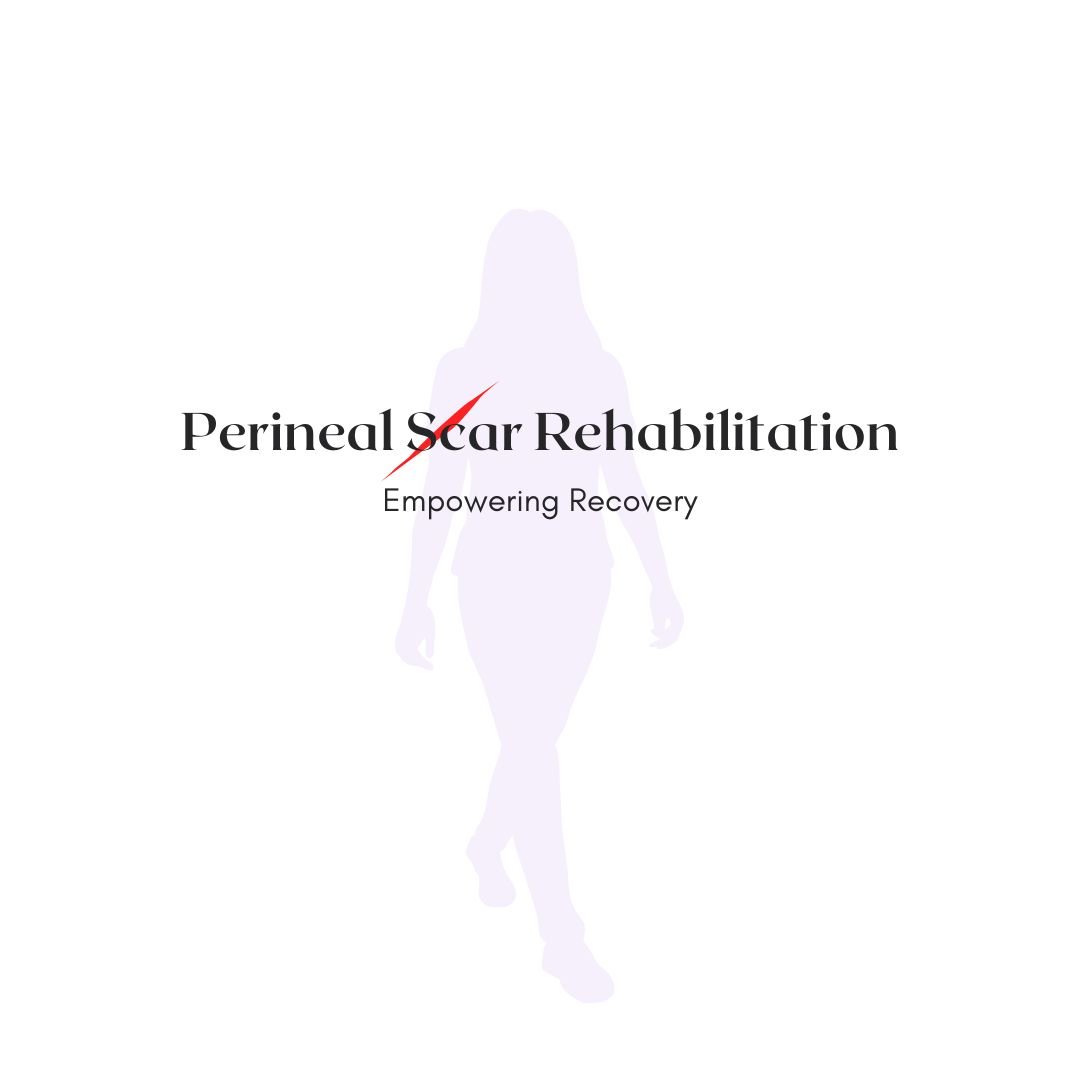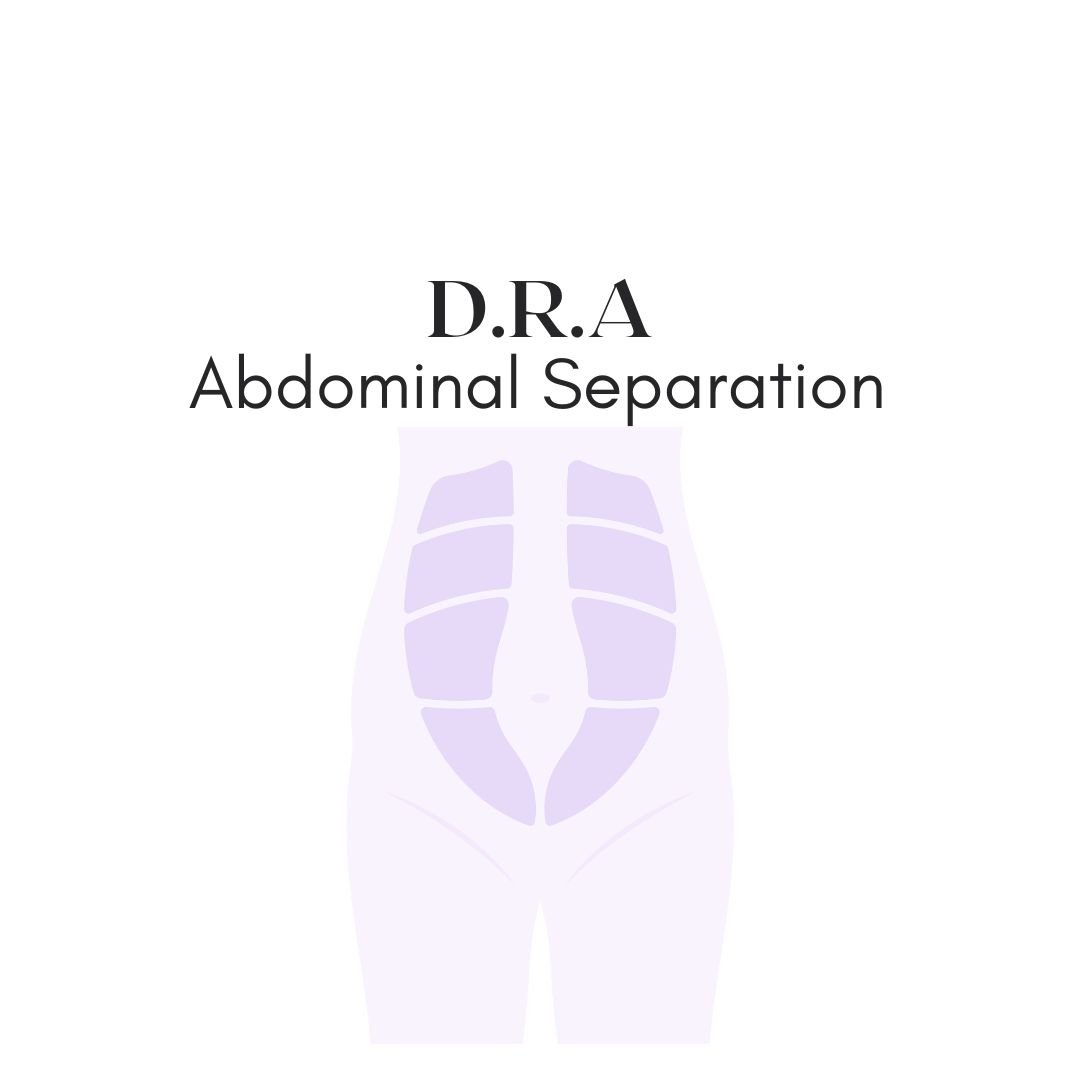Blog Topics
Vaginal Steaming and Pelvic Health: What Women Need to Know from a Pelvic Floor Physiotherapy Perspective
Vaginal steaming is often promoted as a natural way to cleanse the vagina, balance hormones, or support pelvic health, yet these claims are not supported by scientific evidence. This article examines vaginal steaming through a pelvic floor physiotherapy lens, outlining potential risks, common misconceptions, and safer, evidence-based approaches to vaginal and pelvic health.
Yoni Eggs and Pelvic Floor Health: What Women Need to Know from a Pelvic Floor Physiotherapy Perspective
Yoni eggs are often promoted for pelvic floor strengthening and vaginal health, yet these claims rarely reflect how the pelvic floor actually functions. This article explains the anatomy, potential risks, and why assessment-based pelvic floor physiotherapy offers a safer, evidence-informed approach.
Does Intercourse Loosen the Vagina?
The belief that intercourse permanently loosens the vagina is a persistent myth rooted in a misunderstanding of pelvic anatomy. This article examines vaginal and pelvic floor physiology, clarifies why sexual activity does not alter vaginal structure, and explores the roles of muscle coordination, hormones, and the nervous system in sexual sensation.
What Happens When You Pee Just In Case? Healthy Bladder Habits Every Woman Should Know
Bladder habits play a critical role in urinary function and are often an overlooked contributor to urgency, frequency, and difficulty with bladder control. This blog examines the physiology of urination, the impact of learned behaviours such as “peeing just in case” on bladder signalling, and the role of pelvic floor muscle coordination and nervous system regulation. It outlines evidence-informed strategies, including pelvic floor physiotherapy, to restore healthy bladder timing and function.
Restoring Bladder Control: Treatment of Urinary Urgency and Frequency
Urinary urgency and frequency are prevalent symptoms that can profoundly affect quality of life. These challenges typically stem from various factors, including underlying pelvic floor dysfunction, leading to disruptions in daily routines and disturbances in sleep patterns. Thankfully, pelvic floor physiotherapy provides accessible and efficacious treatment solutions to tackle these issues, offering hope for improved well-being without invasive measures.
To Birth & Beyond: The Benefits of Birth Preparation
Preparing for birth is crucial for a smooth and positive childbirth experience. At Ova, our "Preparation for Birth" program equips expectant mothers with the knowledge and physical readiness necessary for labour and delivery.
What’s Causing Your Pelvic Pain? Symptoms, Causes, and Solutions
Pelvic pain can impact your daily life, intimacy, and well-being, but expert care can help. Explore common causes, learn how advanced pelvic floor physiotherapy provides lasting relief. Find out when to seek help and take control of your recovery. Read our full blog for expert insights!
Vaginal Dryness 101: Causes, Symptoms & How Pelvic Floor Physiotherapy Can Help
Vaginal dryness is a common condition that affects many women, causing discomfort, pain, and a range of other symptoms. While it can occur at any stage of a woman's life, it is particularly prevalent during and after menopause.
Overcoming Endometriosis: The Role of Pelvic Floor Physiotherapy
Endometriosis is a complex and often painful medical condition that affects millions of women worldwide. While there's no cure for endometriosis, various treatments can help manage the symptoms and improve the quality of life for those who suffer from it.
Addressing Pain During or After Sex: A Comprehensive Guide
Pain during or following sexual activity is not a normal part of the experience, despite its frequent occurrence among many people. Although encountering pain at some moments in life is common, experiencing it during or after sex is not typical and should be addressed.
Vulva Cleansing: Safe Hygiene for Optimal Health
Gentle cleansing of the vulva is often sufficient with just water, but for those who prefer using products, it’s essential to choose safe, non-irritating options. This expert guide highlights why harsh ingredients like salicylic acid should be avoided and offers product recommendations specifically for vulva care, while also providing practical tips for maintaining pelvic health.
Ultrasound Therapy for Clogged Milk Ducts
Although traditional approaches such as warm compresses and massage are frequently beneficial, they may not completely alleviate the symptoms. Therapeutic Ultrasound emerges as a promising solution for both pain relief and addressing the difficulties associated with a clogged milk duct.
Vaginismus & The Role Of Pelvic Floor Physiotherapy: A Journey Toward Pleasure
Vaginismus is a complex condition characterized by involuntary spasms or contractions of the muscles surrounding the vagina. This involuntary response can occur in anticipation of penetration or during attempts at vaginal entry. It can lead to significant physical pain, emotional distress, and strain on relationships.
From Pain to Pleasure: Addressing Pain With Intercourse
Statistically, most people will experience some form of pain or discomfort during sex at one point in their lives. One common issue that many individuals, regardless of gender, face is pain with intercourse. Sexual health is an integral part of overall well-being, and any discomfort or pain during sexual activity can significantly impact one's quality of life. Despite the length of time you have been experiencing pain, there are many treatment options including Pelvic Floor Physiotherapy to help you go from Pain to Pleasure!
Pelvic Floor Physiotherapy for Coccyx/Tailbone Pain Relief
Coccydynia, or coccyx pain, can be a debilitating condition that results in discomfort and distress. Although there are several treatment options, pelvic floor physiotherapy stands out as the primary approach for effectively managing Coccyx pain.
Understanding Interstitial Cystitis/Painful Bladder Syndrome
Interstitial Cystitis (IC), alternatively referred to as Painful Bladder Syndrome (PBS), is a persistent bladder condition. Predominantly impacting women, this condition can significantly influence one's quality of life, inducing discomfort, pain, and a sense of urgency regarding urination. Despite the absence of a definitive cure, there are avenues for relief.
Relieving Vulvodynia: A Journey From Pain to Pleasure
Vulvodynia is a multifaceted and often misconstrued condition impacting a significant number of women globally and can impact both the physical and emotional well-being of affected individuals. Pelvic Floor Physiotherapy is one of the primary treatments for managing this condition.
Provoked Vestibulodynia & How Pelvic Floor Physiotherapy Can Help
Provoked Vestibulodynia, also known as PVD or vestibulitis, is a debilitating condition that affects a significant number of women worldwide. Despite its prevalence, it remains widely misunderstood and often goes undiagnosed or misdiagnosed.
Painful Orgasm: Causes, Treatment Options, and the Role of Pelvic Floor Physiotherapy
Painful orgasms, also known as Dysorgasmia, can affect a woman’s quality of life and intimate relationships. In this blog, we explore the causes, such as pelvic floor dysfunction, clitoral adhesions, and more, and share evidence-based solutions, including pelvic floor physiotherapy for real relief.
Prioritize Your Pelvic Health: The Benefits of Pelvic Floor Physiotherapy
Pelvic health is vital for overall well-being, and regular visits to a pelvic floor physiotherapist can help prevent and treat issues like incontinence, pain, and sexual dysfunction. Even without symptoms, annual check-ups are recommended to maintain pelvic muscle health and detect early signs of dysfunction.






